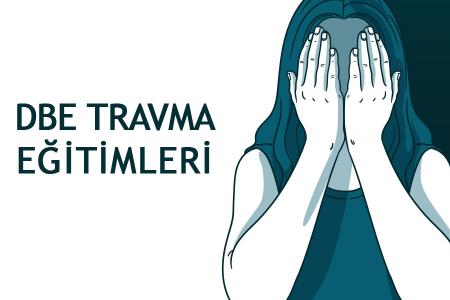Trauma in Adults
How to Identify Them
Some believe the following: anything that causes stress is harmful. Negative results of stress will either appear immediately, or sometimes in the future. We can regard people who went through a challenging or traumatic experience as people who have survived a catastrophe; as in the example of Robinson Crusoe. Like every healthy person, they possess an inner mechanism for flexibility, adaptation, recovery and coping. If the process works right, these mechanisms will return the individual to his/her old, normal self. After a traumatic incident has been experienced, almost everyone gives stress reactions and these reactions continue for some time. But in the end, the environment and and life will go on with its routine work. We may describe this process approximately as:
The psychological processes following a disaster.
Which Emotions Intensify After Experiencing a Trauma?
After a highly challenging or a traumatic experience, if an individual observes his/her inner world closely s/he will find that the experience has gathered around tree main emotions:
- A part of it is an intense anger towards the “responsible parties” but a greater part towards the target.
- Intense grief about the losses, if there are any.
- Intense fear that the incident may reoccur.
- These tree main emotions are seen distinctly especially in the first stage. The intense anger, grief and fear here can block the individuals. What are the first reactions of stress?
The Stress Reactions Observed at the Times of Crisis
As was stated earlier everybody exposed to highly challenging or traumatic experience gives “stress reactions”. These reactions are defined as “normal reactions to abnormal occurrences”. In case they show continuity, according to the duration and period, they are defined as acute stress disorders.
What Are Traumatic Stress Reactions?
After a highly challenging experience, the first reaction observed is a shock reaction. After the first shock has been overcome, the individual is confronted with such complex emotions as fear, anxiety, guilt, remorse, anger, pessimism, desperation and shame.
Releated Content:
EMDR 1 (Eye Movement Desensitization and Reprocessing) EMDR 2 (Eye Movement Desensitization and Reprocessing) for more information Ergün...
Trauma is defined as situations that occur quite unexpectedly in life’s daily routine and undermines an individual’s endurance or ...
Please refer below for more information on our Training Programs. If you have any questions please contact us from here. Trauma Training ...
Especially in case of natural disasters, approximately 10-15 % of victims recover in a very short time; they can cope with the effects of the event ...






